Export sight
Military-technical cooperation with foreign countries not only brings Russia billions of dollars, but is also an essential tool for solving geopolitical tasks. Vlast has figured out how the armaments trade system was created in modern Russia, what changes have already occurred in it, and what are only expected.
The system of domestic arms exports was formed almost a hundred years ago. A start was made in 1917 with the appearance of the Interdepartmental Committee on Foreign Supply with the executive body in the form of a dome of the same name. But the day of the emergence of the military-technical cooperation system (MTC) is considered to be 8 in May 1953 of the year - on that day the USSR Council of Ministers issued an order to establish the main engineering department under the Ministry of Internal and Foreign Trade, which served as the state mediator in the field of sales weapons abroad. Up to this point there were several subdivisions that had the right to military-technical cooperation (IUI of the Ministry of Foreign Trade, the 9-th Directorate of the Military Ministry, the 10-th Directorate of the General Staff of the Soviet Army, the 10-th Division of the Marine General Staff, etc.), which made it difficult for complicated control in the supply of weapons to foreign countries. The creation of the SMI - a narrow-profile coordinating body in the field of military-technical cooperation - was designed to solve this problem.
Two years later, it was reassigned to the Directorate General for Economic Relations with the People's Democracy (GUDES) under the USSR Council of Ministers, and two years later became a member of the USSR State Committee for Foreign Economic Relations (GKES). It was entrusted with the functions of reviewing applications from foreign countries for the preparation of draft resolutions of the USSR government, the design of contracts, the provision of military equipment and weapons shipment, and the settlement of accounts with customers for deliveries of military equipment. In 1958, by the order of the USSR Government, the Main Technical Directorate (STU) appeared on the basis of the GKES based on the 5 control of the SMI: it was engaged in the construction of repair facilities for capital and medium repairs of military equipment, spare parts, technical assistance and the creation of special objects. Two of these controls - SMI and GTU - will remain key for the country's entire arms exports right up until the start of the 1990s. In 1992, the SMI will be transformed into the foreign economic association Oboronexport, and the GTU will be transformed into the foreign economic state company Spetsvneshtehnika. But they will not last long: in November 1993, a state company will be created on their base for the export and import of weapons and military equipment - Rosvooruzhenie. This company became the first independent commercial organization in the sphere of military-technical cooperation, the activity of which was not controlled by any of the federal executive bodies.
Machinery and weapons were supplied either on account of the loan issued, or even free of charge.
From the Soviet system of military-technical cooperation, Russia inherited a seemingly good inheritance. Rear Admiral Sergey Krasnov, retired, who worked in the 1969-1989 years at the SMI, and later headed the GTU, asserts that "the scope of military-technical cooperation in the Soviet years was enormous." “Suffice it to say that the profits amounted to tens of billions of dollars. In total, in different years, including 1992 — the last year of the SMI — we supplied military equipment to almost all 70 countries of the world,” he recalled in an interview with the Red Star. “For comparison: before the Great Patriotic War, the Soviet Union supplied weapons only to six countries: Turkey, Afghanistan, Iran, Mongolia, China and Spain.”
Despite such a wide geography of deliveries, the USSR’s revenues from arms exports were practically not felt: in monetary terms, deliveries to some countries amounted to tens of billions of dollars, but equipment and weapons were supplied either on account of a loan, or even free of charge. Thus, the Soviet leadership supported the governments of friendly (primarily socialist) countries. In 1977-1979, Redut-E coastal missile systems were delivered to the Socialist Republic of Vietnam and the People’s Republic of Bulgaria, and in the 1983 year to the Syrian Arab Republic. The latter, by the way, the total debt for weapons and military equipment purchased from the USSR was about $ 10 billion.
The Soviet military-technical cooperation system — cumbersome and overly bureaucratic — turned out to be completely unprepared for the new Russian realities. Enterprises of the military-industrial complex in the conditions of economic collapse and, as a result, a tiny domestic order, were on the verge of survival. This thesis, however, was not shared by everyone. For example, in an interview with the Kommersant newspaper, the head of Rosvooruzhenie, Viktor Samoilov, said that the company “managed to restore the sales markets of products by“ concentrating efforts in one hand ”:“ If a year ago (1993 a year. - “Power”) we had about for $ 1,5 billion of signed contracts, then today (November 1994 of the year.– "Power") - for $ 3,4 billion. " "We have tripled the volume of future commitments. Believe me, it was not easy to do: both the people and the enterprises in 1992-1993 were the same, little has changed here. It was really a very difficult period for us, but the work bore fruit. Of course , this does not mean that a certain General Samoilov came, whose head turned out to be square compared to the others - the ground was prepared before us, "the head of the company said. In fact, the salvation was not so much the work of Rosvooruzhenie, as a combination of circumstances: around this time orders from India and China began to appear, which could afford to pay for the products with cash and showed a desire to develop their defense industry, acquiring technologies. Almost immediately, the demand for combat aircraft of the Su family and air defense systems increased. Companies were able to breathe a little, but the situation was still difficult, because their capacities were underutilized. According to the recollections of officials working in the field of military-technical cooperation, many enterprises were ready to deliver products to anyone and in any way, just to see the money. It all happened against the background of the creation in December 1994 of the State Committee on Military-Technical Cooperation - a controlling structure, closed to the president and having the ability to give industrial enterprises the right to conduct foreign economic activity. One way or another, but according to official statistics, revenues from arms exports grew: in 1994, it was $ 1,72 billion, in 1995, in $ 3,05 billion, in 1996, in $ 3,52 billion.
Photo: Viktor Tolochko / TASS
In addition to Rosvooruzhenie, the Ministry of Defense had the right to sell weapons. As the former official of the special services told Vlast, in the 1990s, the 10 administration of the department involved in military-technical cooperation had the right to sell almost any weapon from military arsenals, many of which were crammed with Soviet weapons. “Many people then stung out on this,” the Vlast interlocutor says. “In 1992-1995 there was a sale of everything and everyone. But it couldn’t have happened otherwise - if there is a bacchanalia in the state, it means there will be a bacchanalia and everywhere. Nobody’s selling process de facto did not control the weapons of the military: what they wanted was what they did, but it turned out that they sold to anyone and what they got. That was the tragedy. " For example, in the middle of the 1990-x, it was unofficially reported on the transfer of part of the weapons listed on the balance of the Western Group of Forces in Germany to the Balkans. Small arms, ammunition and spare parts were sold almost uncontrollably, sometimes even reaching the illegal sale of heavy artillery. In addition, according to an intelligence officer, at that moment there were leaks of weapons production technologies abroad, illegal re-export and copying of samples of our weapons.
An attempt to reform the PTS system was undertaken in August 1997, when Promexport was formed. According to Boris Yeltsin’s decree “On Measures to Strengthen State Control of Foreign Trade Activities in the Field of Military-Technical Cooperation of the Russian Federation with Foreign States”, the task of the new company was to implement military equipment released from the armed forces abroad in connection with the ongoing military reform at that moment was Igor Sergeyev). According to several interlocutors of Vlasti, who worked in the MTC field, this idea was periodically voiced by Boris Yeltsin at closed meetings since 1994 of the year. However, he listened carefully to the proposals, took time to think, consulted with the staff of his administration (he noted, he even had an assistant on military-technical cooperation issues, Boris Kuzyk), promised to make a decision soon. But nothing has been happening for two years.
According to various estimates, by the end of the 1990s, India and China accounted for up to 80% of military exports, and, moreover, they failed to gain a foothold in the markets of other countries. The competition between defense enterprises on external sites grew, and the powers of Rosvooruzheniye and Promeksport, despite a completely different circle of tasks, were duplicated. The Kremlin and the government began to realize that the military-technical cooperation system needs urgent reform. Their proposals, according to Vlast, in 1998 were prepared by the special services, the Security Council of the Russian Federation and the military. However, due to the economic crisis that struck in August of the same year, it was decided to postpone this issue. Radical reform of the weapon export system was carried out only in 2000, with the new head of state, Vladimir Putin.
In November 2000, President Putin created the Rosoboronexport special weapons exporter, military and special equipment, which included Promexport and Rosvooruzhenie. The new structure was headed by a newcomer from the special services, Andrei Belyaninov (now the head of the Federal Customs Service), and his first deputy was Sergei Chemezov (now the general director of the state corporation Rostec). In parallel, the Committee for Military-Technical Cooperation (KVTS) was created in the Ministry of Defense, headed by Deputy Defense Minister Lieutenant-General Mikhail Dmitriev. He believes that 1990's cannot be considered lost: "People were normal, but the situation in the country simply did not allow the system to develop. In 2000, we relied on what was done before us: many specialists from Promexport and Rosvooruzheniye "moved to Rosoboronexport."
Photo: SANA / Reuters
As told to Vlast Sergei Chemezov, he led the work on the reform together with the then Deputy Prime Minister for the defense industry Ilya Klebanov: "It was decided to build a" presidential vertical ": to close the system to the president, who would have the last word or to other countries, and create a commission under the head of state - a collegial body "(see the interview," There was not a single year when volumes fell, there was always growth "). “The task was to break down the existing MTC system,” recalls Mikhail Dmitriev in an interview with Vlast. “To reformat the work of Rosvooruzhenie, to get rid of intermediary structures, which was right, no one had any objections to this during Vladimir Vladimirovich didn’t come up with a first arms export meeting. The decision to create a single state mediator is a positive thing. " According to him, the presidential vertical appeared in the new system, with Rosoboronexport and KVTS: "It was convenient to quickly solve the necessary issues."
Solvent countries did not want to acquire Russian weapons, because they hung over the USSR
One way or another, but the PTS system was going through a radical break. Rosoboronexport received the right to conduct foreign economic activity in terms of the supply of finished products, while enterprises needed for this license were deprived. The factory directors did not want to lose their freedom and be content only with the supply of spare parts for the products supplied. According to the recollections of several sources of "Vlasti" in the defense complex, the Tula Instrument Design Bureau, which until the license was revoked in 2007, was sold overseas by the Cornet-E anti-tank complexes worth $ 150-200 million annually, was very actively resisting. "They fulfilled their obligations under previously concluded contracts, but we did not want to create a precedent in the new configuration," another interlocutor explains the logic of the decision. Some officials from the arms trade system itself opposed, believing that a substitution of concepts might occur: they say, all military-technical cooperation will be directed not at the development of the defense industry, but at the commercial interests of the special exporter. But they turned out to be a minority. In 2004, Sergey Chemezov headed Rosoboronexport, and Mikhail Dmitriev - the Federal Service for Military-Technical Cooperation (successor of the KVTS). “We have removed all internal competition in the Russian defense industry, becoming a powerful fist, we were perceived on the world market,” says Rosoboronexport employee. “In 2000, Russia received $ 2,9 billion, and after 16 years, this amount has multiplied. So , did everything right. " This completed the internal reform of the PTS system.
Now it was necessary to begin work on attracting new partners in the market. If relations with India and China in the middle of zero relations continued to develop quite successfully, then it was quite difficult to enter the sites of other countries. The policy had to be dealt with: solvent countries like Vietnam, Syria and Algeria did not want to acquire Russian weapons, because they had debts to the USSR hanging over them. In 2000, Moscow forgave $ 9,53 billion to Hanoi, in 2005 - about $ 10 billion to Damascus, in 2006 - $ 4,7 billion to Algeria. “We understood that this money will never be seen, but as soon as we put an end to the issue of debt obligations, things immediately changed: we signed a package of contracts with Algeria for 4,5 billion. This is a matter of pure politics,” the Vlast official said. government. - Since then, issues of military-technical cooperation have received attention through the Foreign Ministry, the Ministry of Defense and, naturally, at the level of the first person. " In 2007, Rosoboronexport became a subsidiary of the state corporation Russian Technologies, headed by Sergey Chemezov, and Anatoly Isaykin was appointed head of the state mediator.
A high-ranking source of Vlasti in the Kremlin believes that the current MTC system is somewhat bureaucratic, but is convinced that compared with the options offered in 2000-x, the scheme proposed by Sergey Chemezov and Ilya Klebanov turned out to be the best. "Leading organizations need to be given jobs in the foreign market, but only to a certain extent. We must not give the right to supply the final weapons to anyone, because we have to know who we sell and what it will be used against, against whom. Then this is the same the weapon didn’t shoot against us, ”said the official.
For 16 years, Russia has formed the backbone of the main buyers (including India, China, Venezuela, Vietnam, Iraq, Algeria), through which Russia forms its portfolio of orders. Rosoboronexport connects certain prospects for promoting global markets with helicopters such as Mi and Ka; anti-aircraft missile systems and complexes S-400 Triumph, Antey-2500, Buk-M2E, Tor-M2E, ZRPK Pantsir-S1, MANPADS Igla-S. In the naval sphere - with Project 11356 and Cheetah-3.9 frigates, Project 636 and Amur-1650 submarines and Svetlyak and Lightning patrol boats. The land part is represented by modernized tanks T-90S, BMP-3 infantry fighting vehicles and vehicles based on them, Tiger armored vehicles. Success is enjoyed by Su-30, MiG-29 and Su-35 fighters, the demand for Yak-130 combat training aircraft is quite large.
Photo: Dmitry Azarov, Kommersant
Do not forget that due to the export of armaments Russia manages to achieve dividends on the international arena: the supply of weapons to one country or another can radically change the balance of forces in the region. For example, in 2005 and 2014, Moscow could have supplied Iskander tactical complexes and C-300 anti-aircraft missile systems to Syria, respectively, however, at the request of Tel Aviv, it did not. According to Vlast, in return, the Israelis provided assistance to the Russian Federation through the special services.
“If we contracted the newest air defense systems to everyone who wants them, then the capacities would be loaded for decades ahead without taking into account the order of the Russian Defense Ministry,” says the MTC official. “There are, of course, failures — for example, when we prepared a package of contracts for $ 20 billion with Saudi Arabia, but they threw us at the last moment. Or story with the refusal to supply C-2011 to Iran in 300, it turned out to be image losses for us. But in any case we were and remain competitive. We are recognized in the world. "
According to him, no major changes will be made to the military-technical cooperation system in the near future: "As far as I know, Vladimir Vladimirovich is satisfied with everything and there are no complaints about Rosoboronexport’s activities and, in general, no arms exports."
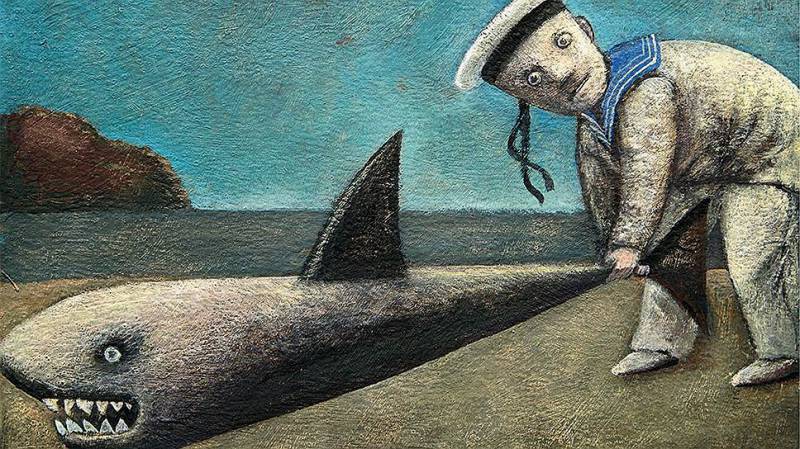
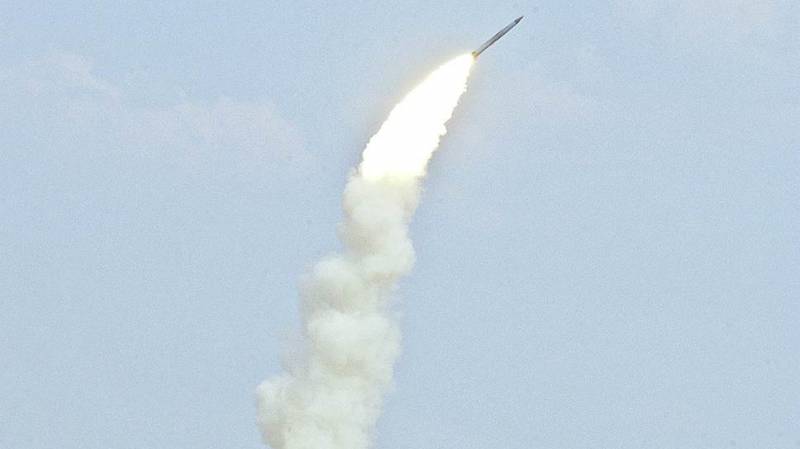
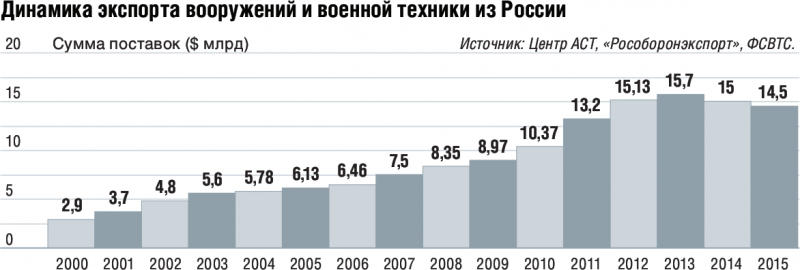
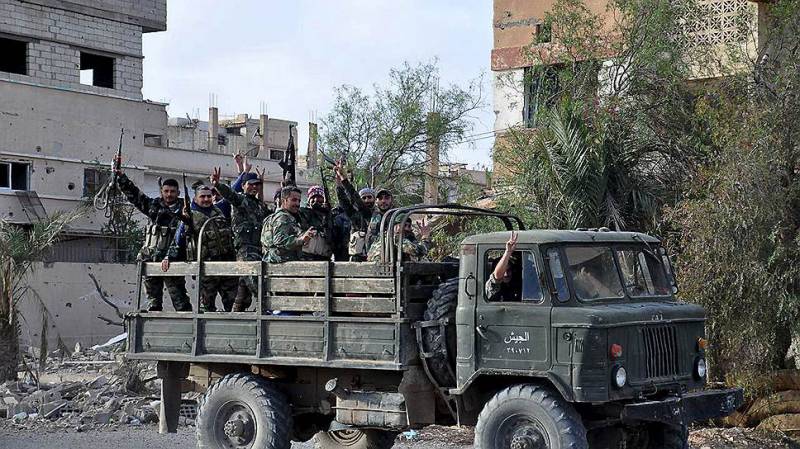
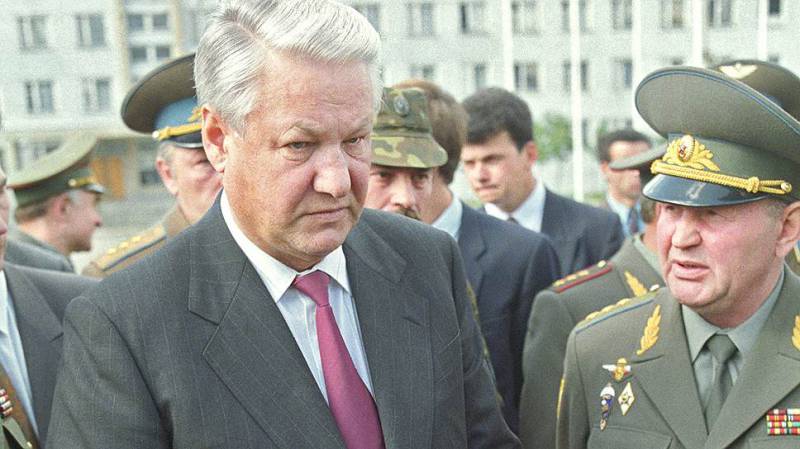
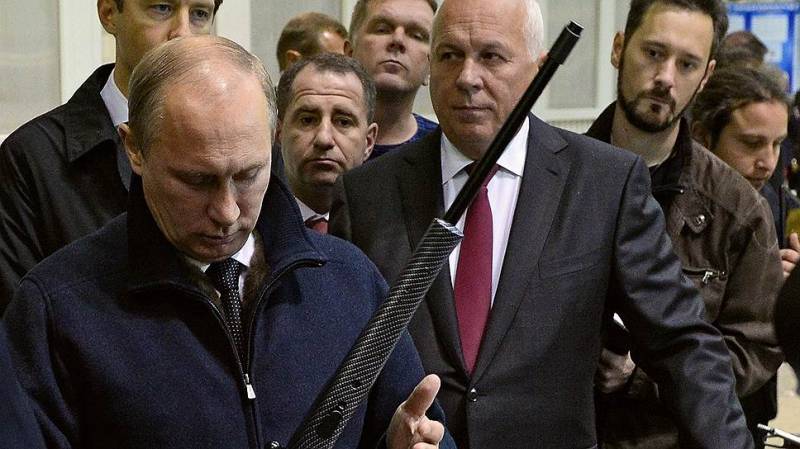
Information